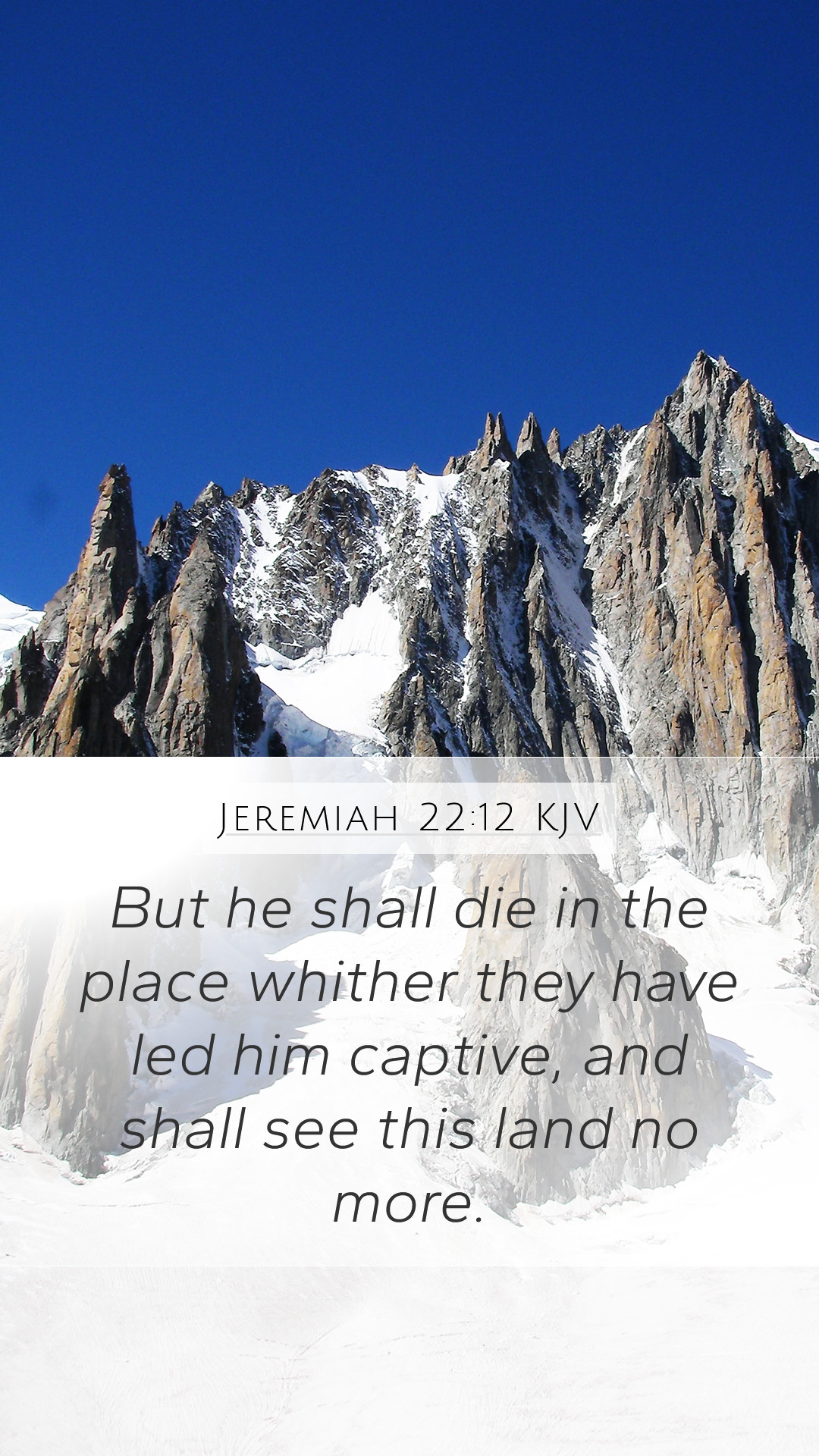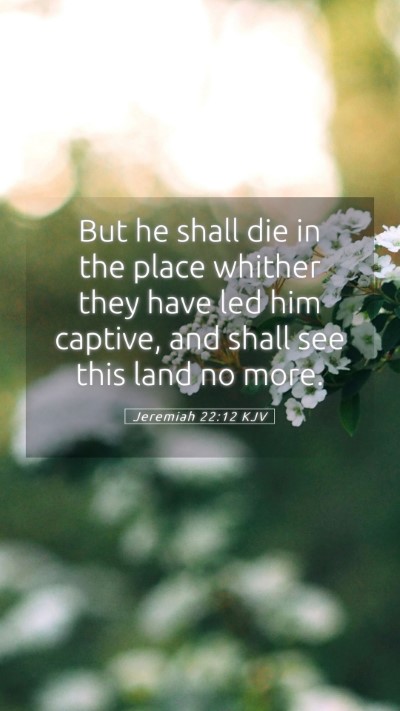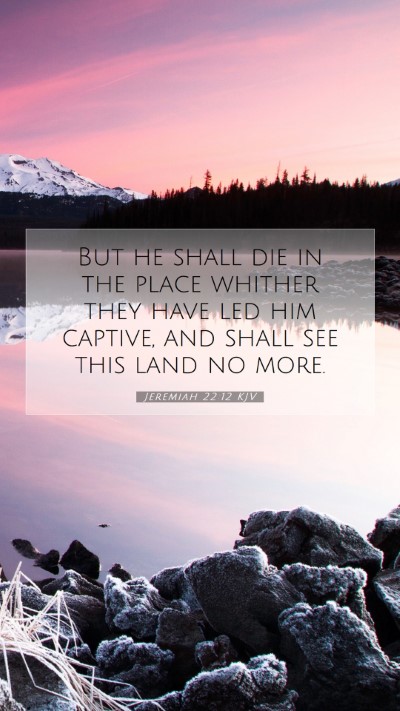Understanding Jeremiah 22:12 - Bible Verse Explanations and Interpretations
Verse Text: "But he shall die in the place whither they have led him captive, and shall see this land no more."
This verse is rich in meaning, and its interpretation can be drawn from various public domain commentaries. Below, we summarize several insights to help provide a comprehensive understanding of Jeremiah 22:12.
Summary of Insights from Various Commentaries
-
Matthew Henry's Commentary
Matthew Henry explains that Jeremiah 22:12 reflects a tragic prophecy about Jehoiachin (also referred to as Jeconiah), the king of Judah. His captivity signifies the consequences of disobedience to God's will. Henry emphasizes that this verse serves as a sobering reminder of God's judgment upon those who turn away from Him.
-
Albert Barnes' Commentary
Albert Barnes notes that the phrase "he shall die in the place whither they have led him captive" foreshadows Jehoiachin’s death in Babylon. Barnes highlights the significance of Jehoiachin's removal from his homeland and the resulting loss of reign and royal privileges. It exemplifies the fate awaiting those who lead a life contrary to divine laws.
-
Adam Clarke's Commentary
Adam Clarke elaborates on the historical context, mentioning that Jehoiachin was taken captive by Nebuchadnezzar, which fulfills God's warning through Jeremiah. He underscores the theme of loss—specifically, the loss of homeland and position—as a profound consequence of sin. Clarke stresses the importance of recognizing God’s sovereignty over nations and individuals.
Key Themes and Ideas in Jeremiah 22:12
Jeremiah 22:12 presents several essential themes:
-
Divine Judgment: The verse illustrates God's judgment on disobedience, reminding readers of the consequences of neglecting divine commandments.
-
Loss and Separation: The suffering of Jehoiachin serves as a metaphor for loss—spiritually and physically—and the tragic separation from one's homeland and heritage.
-
Historical Context: Understanding the historical backdrop of Jehoiachin's reign and captivity provides greater insight into the verse's significance.
Application and Relevance Today
The implications of Jeremiah 22:12 extend into modern times. It acts as a cautionary tale that emphasizes:
- Making choices aligned with faith to avoid the dire consequences of alienation from God.
- Recognizing the importance of personal accountability in spiritual matters.
- Understanding historical narratives within the Bible that speak to contemporary issues of displacement, judgment, and restoration.
Cross-References
For a more in-depth study, consider these related passages:
- 2 Kings 24:12 - Discusses Jehoiachin's captivity as foretold.
- Jeremiah 22:25 - Further elaborates on the fate of the king.
- Jeremiah 29:10-14 - Offers hope and promises of restoration despite exile.
Final Thoughts on Bible Verse Interpretations
This analysis brings forth profound Bible verse meanings that highlight the consequences of turning away from God and the intricacies of biblical prophecy. For those seeking to deepen their Bible study insights or engage in online Bible study groups, this verse becomes a poignant reflection on leadership, responsibility, and faithfulness.
Understanding Scripture and its applications in our lives necessitates careful examination and the use of Bible study tools. Whether navigating through Bible study lessons or engaging in Biblical exegesis, each verse like Jeremiah 22:12 enriches our spiritual journey and comprehension of God's Word.


